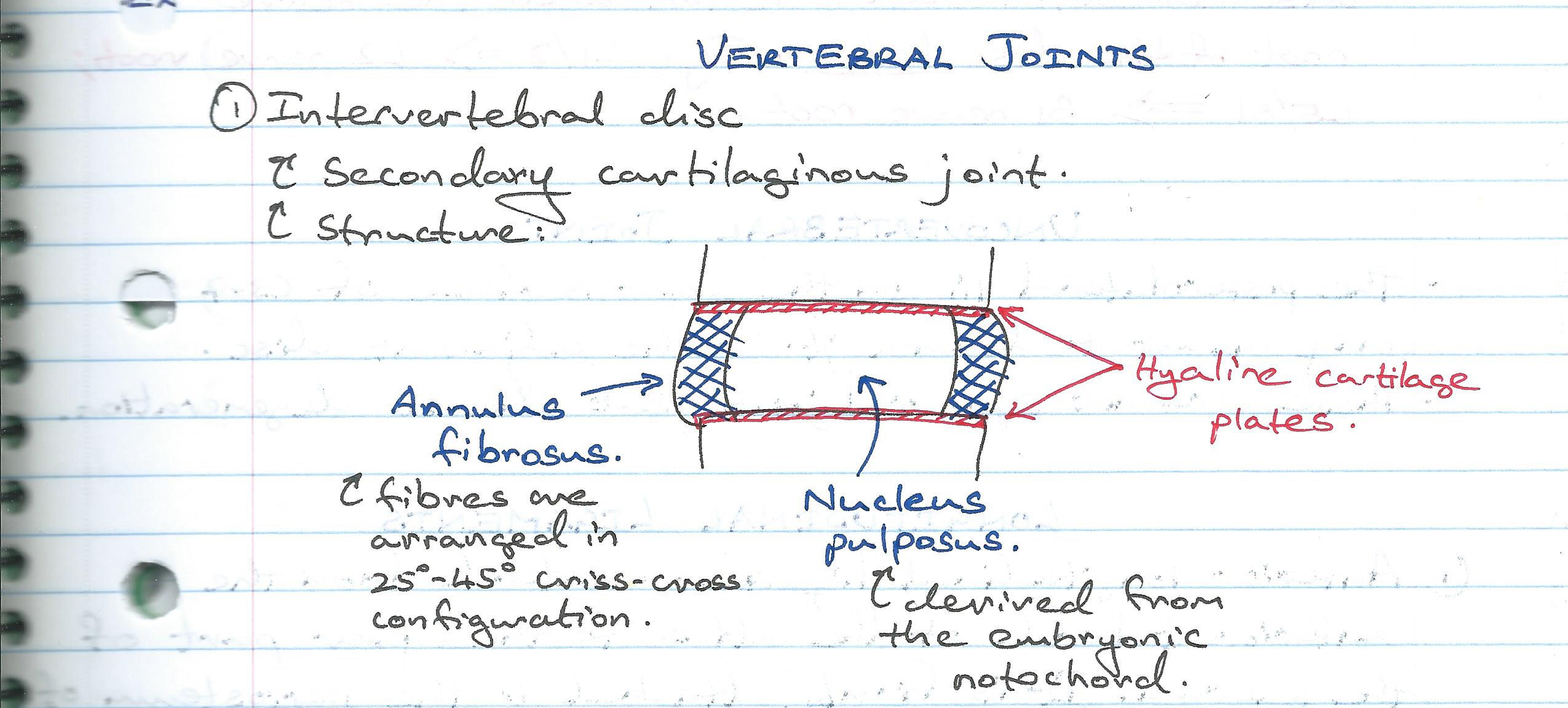Difference between revisions of "VERTEBRAL JOINTS-INTERVERTEBRAL DISC"
From NeuroRehab.wiki
(Imported from text file) |
|||
| Line 9: | Line 9: | ||
<br/> | <br/> | ||
<br/>5. This helps to cushion and distribute the load on the spine. | <br/>5. This helps to cushion and distribute the load on the spine. | ||
<br/>[[Image:Vertebral Joints.jpg]] | <br/>[[Image:Vertebral Joints.jpg]] | ||
<br/><b>Image:</b> Dr. Appukutty Manickam. | <br/><b>Image:</b> Dr. Appukutty Manickam. | ||
Latest revision as of 12:32, 27 March 2023
SUMMARY
1. Intervertebral disc is a secondary cartilagenous joint.
2. Growth of the vertebral bodies occurs in a ventral and lateral direction, hence the nucleus pulposus comes to lie at the back of the disc.
3. The nucleus pulposus accounts for 15% of the whole disc, 90% of which is water at birth. This reduced to 70% by old age.
4. The proteoglycan component of the nucleus pulposus is hydrophilic.
5. This helps to cushion and distribute the load on the spine.

Image: Dr. Appukutty Manickam.
Reference(s)
R.M.H McMinn (1998). Last’s anatomy: regional and applied. Edinburgh: Churchill Livingstone. Get it on Amazon.
Drake, Richard L., et al. Gray's Anatomy for Students. Elsevier, 2023. Get it on Amazon.